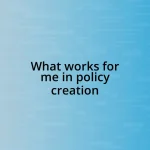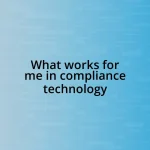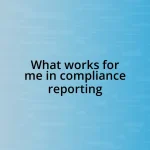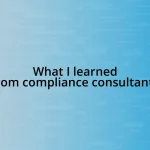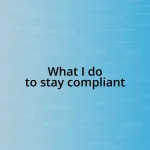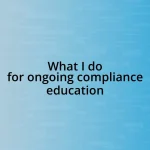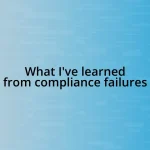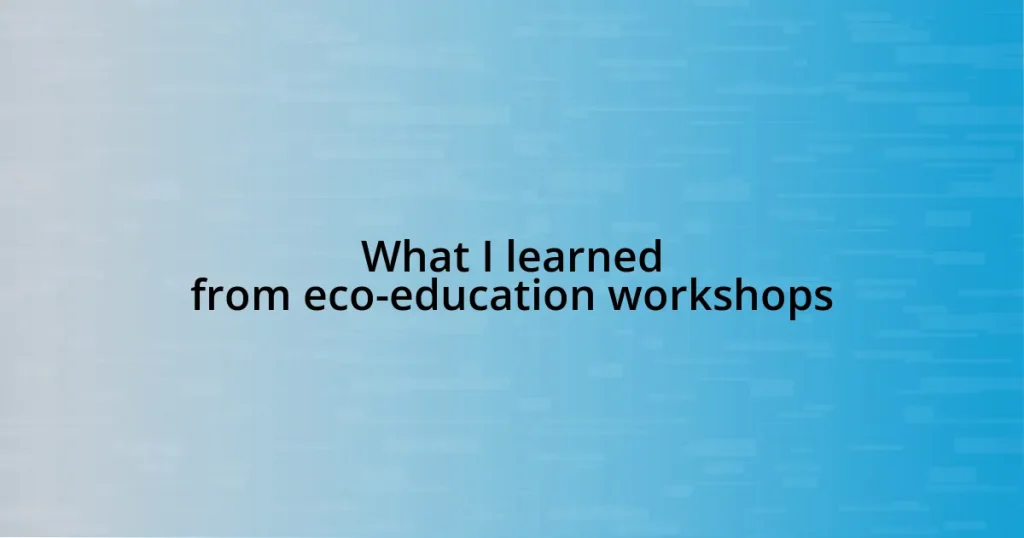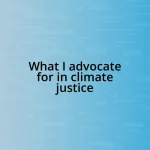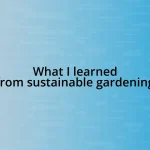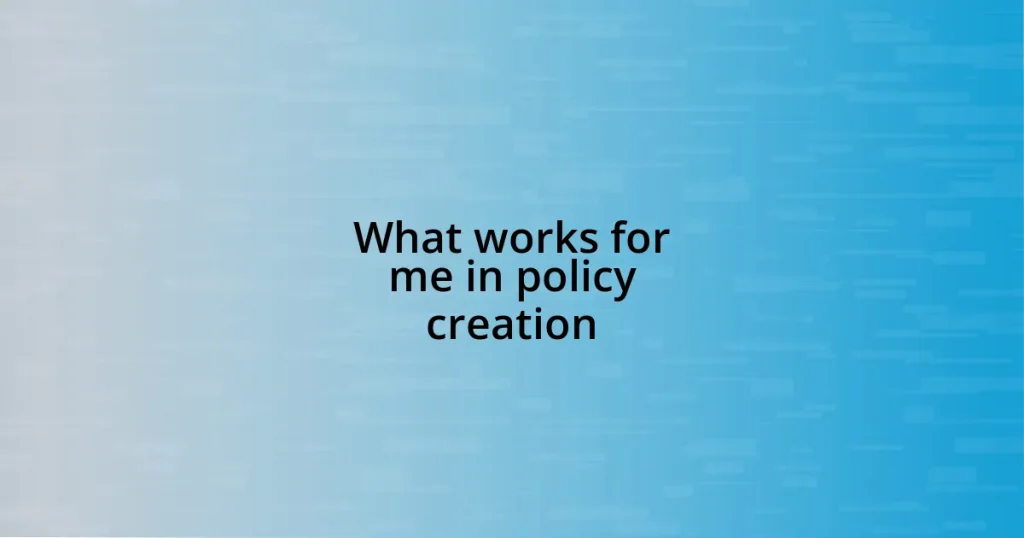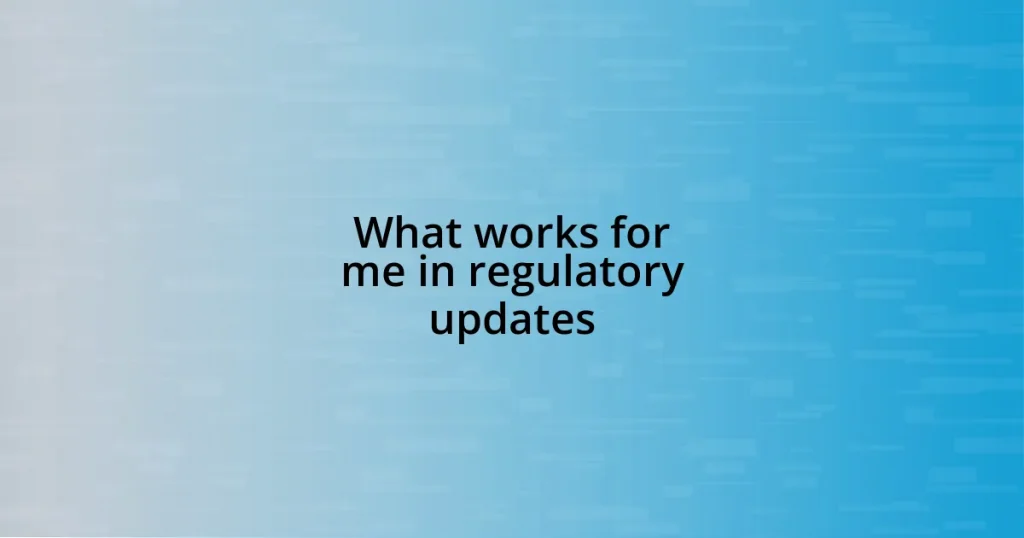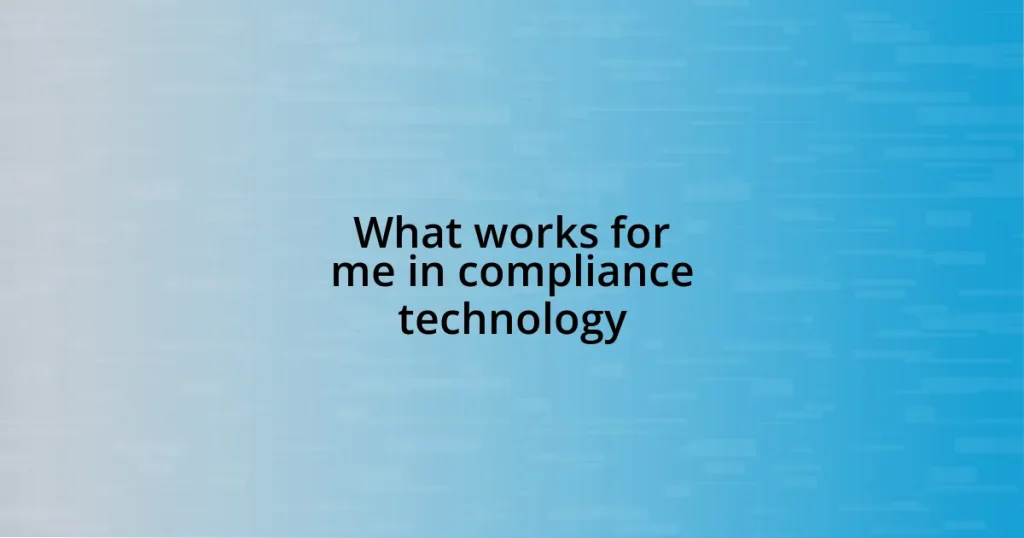Key takeaways:
- Eco-education workshops foster a profound shift in perspective, enhancing understanding of our interconnectedness with the environment.
- Key lessons include the importance of sustainability as a lifestyle choice and the empowerment gained through education and community engagement.
- Practical strategies discussed, such as reducing single-use plastics and implementing local food systems, highlight actionable steps for sustainability.
- Continued learning and networking with eco-enthusiasts enrich experiences and inspire community-wide sustainability efforts.
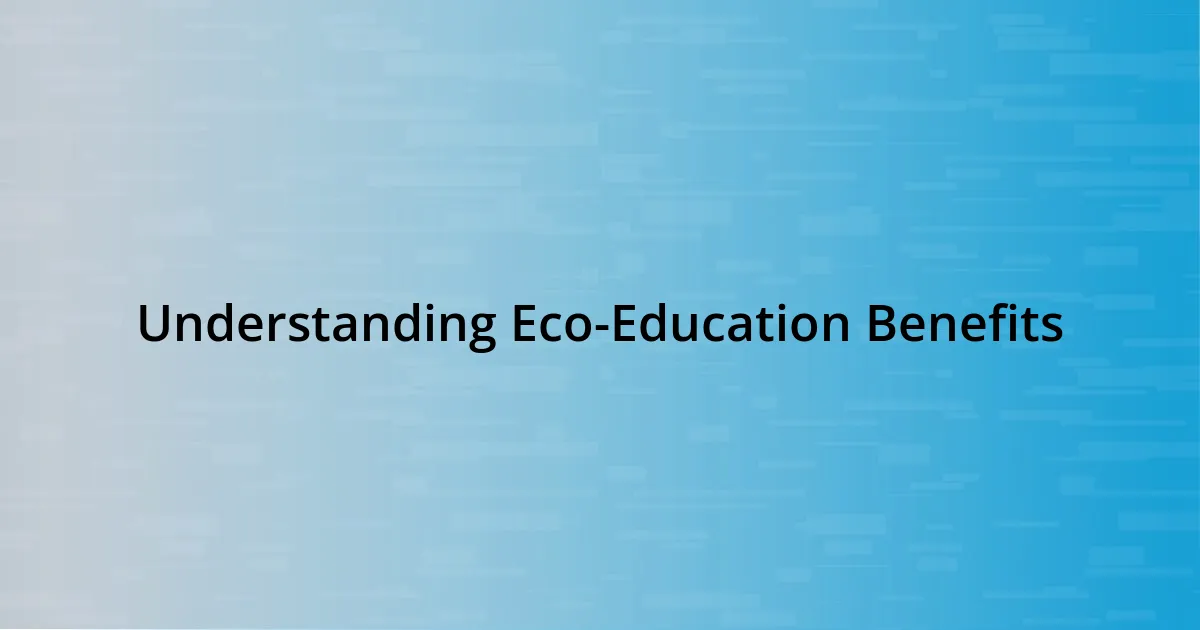
Understanding Eco-Education Benefits
One of the most impactful benefits of eco-education workshops is the profound shift in perspective they encourage. When I first attended one, I felt a revelation as I learned how interconnected we truly are with our environment. Have you ever paused to consider how your daily choices ripple through the ecosystem? Understanding this connection fosters a sense of responsibility that can inspire others to make sustainable decisions.
Moreover, these workshops often lead to a stronger sense of community. I remember meeting like-minded individuals who were just as passionate about the planet as I was. We shared stories, brainstormed ideas, and even planned future projects together. Isn’t it empowering to know that you’re not alone in your journey toward environmental stewardship? Building these relationships is invaluable; they can create lasting support networks that motivate ongoing action.
Finally, eco-education enhances critical thinking skills by challenging participants to analyze complex environmental issues. During one session, we dissected the effects of plastic pollution within our local waterways. Reflecting on it, I realized that the ability to understand and question these problems is vital for inciting change. How can we expect to solve challenges if we don’t first grasp their intricacies? Embracing this analytical mindset is a major step toward becoming effective advocates for the environment.
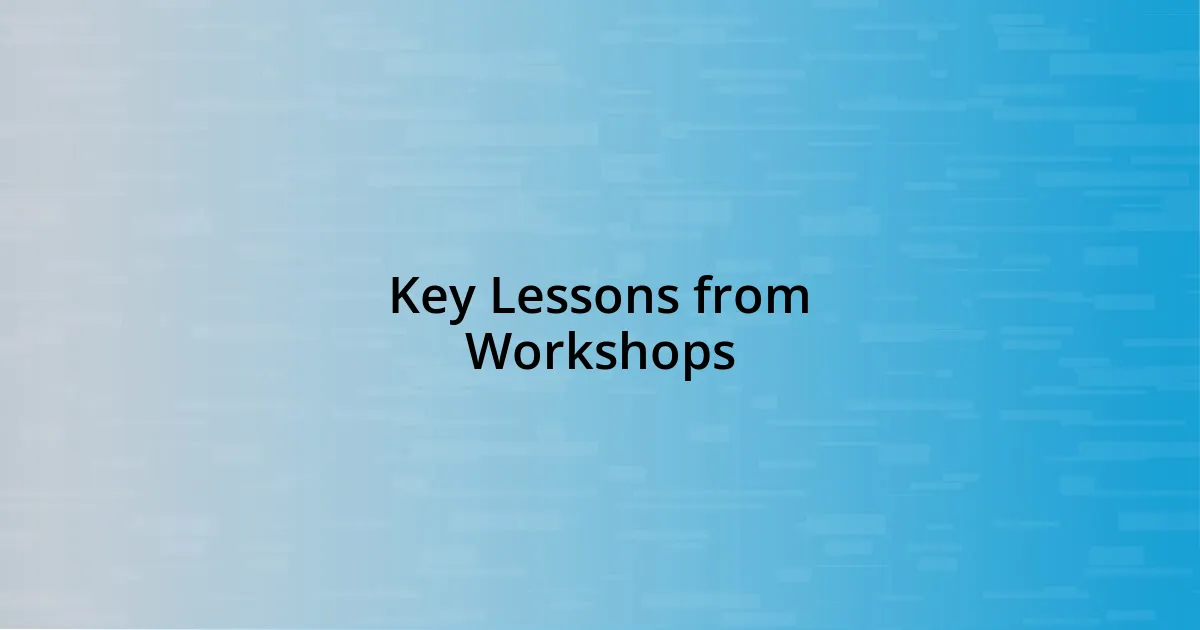
Key Lessons from Workshops
Participating in eco-education workshops has taught me that knowledge is just the beginning of the journey. One memorable session focused on the concept of sustainability—how it’s not merely a trend, but a lifestyle choice. I remember feeling a wave of clarity when we discussed sustainable practices, like reducing food waste by composting. It hit home for me. I realized how small changes in our daily lives can lead to significant impacts on the environment.
Here are some key lessons that resonated with me:
– Interconnectedness: Everything in nature is linked. My actions can affect wildlife, air quality, and even my community’s health.
– Empowerment through Education: Knowledge equips us to make informed choices and advocate for the planet.
– Practical Solutions: Workshops provide hands-on experiences, like building rain gardens; I found simple ideas for improving my own backyard.
– Community Engagement: Collaborating with others can amplify efforts; let’s face it, it’s easier to stay motivated together.
– Creative Problem Solving: I learned to think outside the box, exploring innovative ways to combat challenges, like using reclaimed materials for DIY projects.
Reflecting on these experiences gives me hope. Each workshop felt like a stepping stone towards a deeper understanding of my role in the natural world, and I’m excited to share that journey with others.
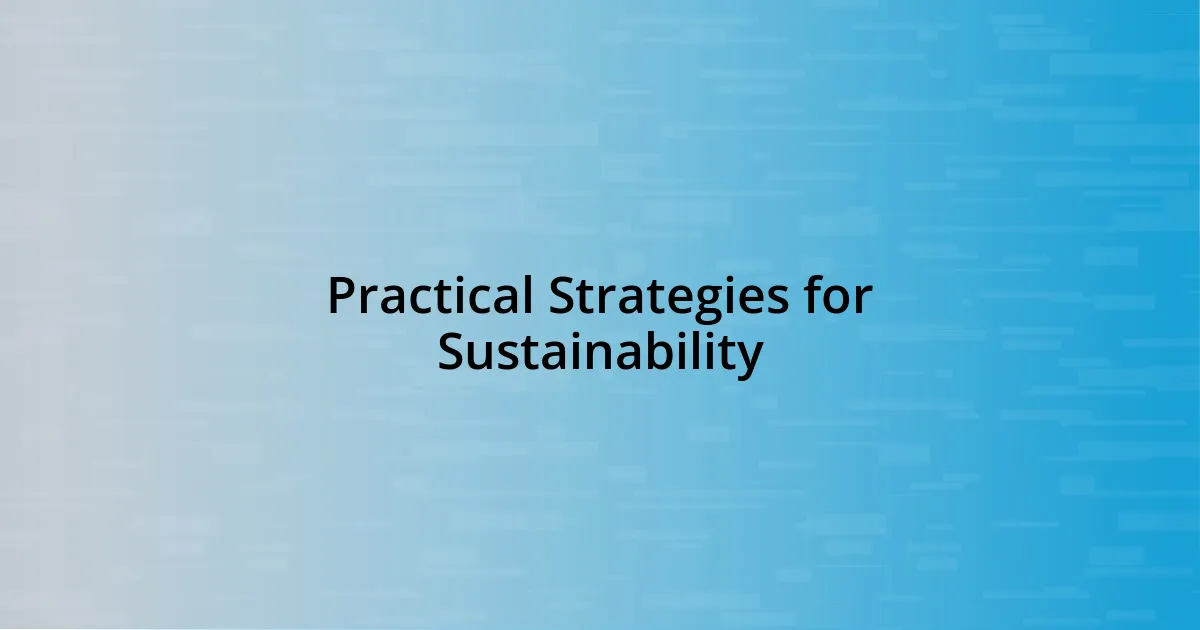
Practical Strategies for Sustainability
Embracing practical strategies for sustainability can be a life-changing journey. One of the most memorable moments for me was when we explored the importance of reducing single-use plastics. I vividly recall finding alternatives like beeswax wraps and reusable containers; it truly inspired me to rethink my consumer choices. Have you tried swapping out plastic items for something more sustainable? It’s amazing how these small adjustments can collectively make a huge difference.
In my experience, one of the most effective strategies discussed was implementing a local food system. During a workshop, we visited a community garden where the joy and pride of growing our own food shone through the participants’ faces. I felt a sense of belonging, knowing that we were contributing to our community’s health while minimizing our carbon footprint. Isn’t it fascinating how growing your own food can foster a connection not just with nature, but also with your neighbors?
Another illuminating topic was energy conservation strategies. I learned about simple changes like switching to LED bulbs and utilizing energy-efficient appliances. Remember that moment when you first realized your energy consumption could be reduced with such easy steps? For me, understanding the impact of these choices on both my bills and the environment was an eye-opener. It was like turning on a light, realizing that I could actively contribute to a greener planet through my everyday actions.
| Strategy | Description |
|---|---|
| Reduce Plastic Use | Switch to alternatives like reusable bags and containers to minimize waste. |
| Community Gardens | Engage in local gardening to grow food sustainably while connecting with neighbors. |
| Energy Conservation | Implement practices like using LED bulbs to decrease energy consumption effectively. |
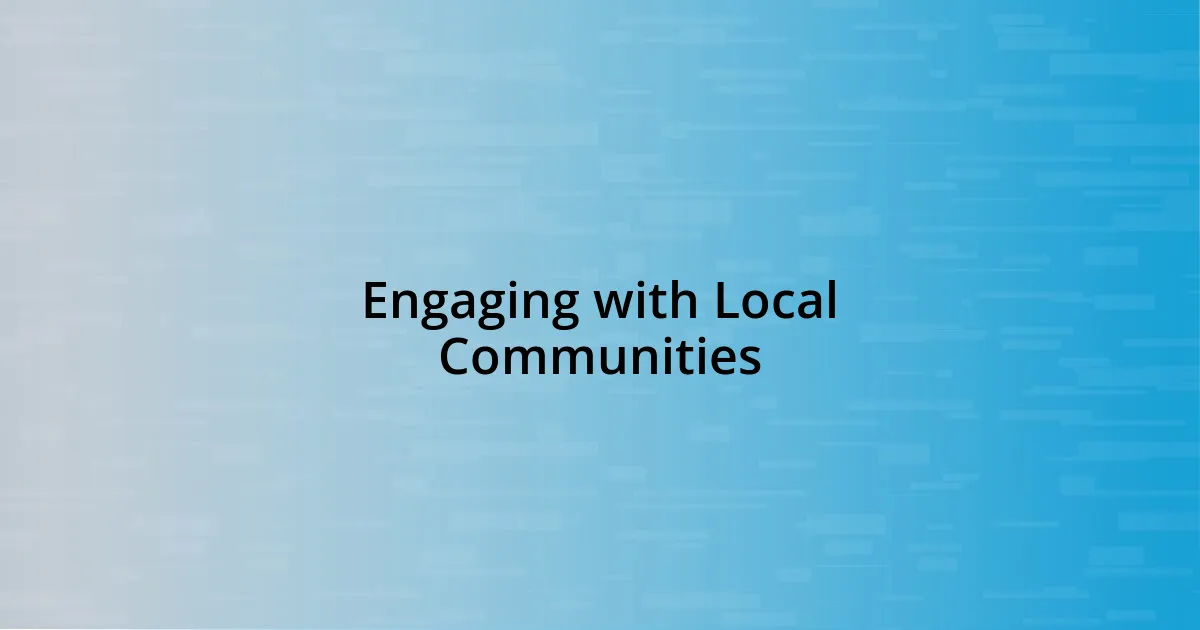
Engaging with Local Communities
Engaging with local communities during these eco-education workshops opened my eyes to the power of collective action. One time, I participated in a neighborhood clean-up event that was organized by workshop participants. The camaraderie was palpable as we exchanged laughter and encouragement while picking up litter, reminding me that our local environment is truly a shared space. Have you ever felt that surge of motivation when working alongside others for a common goal?
I’ve come to appreciate how local communities serve as vital ecosystems for sustainability efforts. For instance, when we brainstormed at a workshop about launching a recycling program, I felt the excitement when local residents began sharing their ideas. It was fascinating to observe how diverse perspectives fueled innovative solutions. Suddenly, what felt daunting transformed into an inspiring project that united everyone involved. Isn’t it remarkable how community engagement can breathe life into ideas that seem out of reach when tackled alone?
Reflecting on my experiences, I’ve seen firsthand how local engagement nurtures a sense of ownership and accountability. One of my favorite moments was when we hosted a workshop aimed at teaching children the importance of composting. The joy on their faces when they understood the impact of this practice on reducing waste was simply magical. It made me realize that educating our youth isn’t just an investment in the future—it creates a ripple effect that can transform our communities. How can we harness that energy to inspire further change?
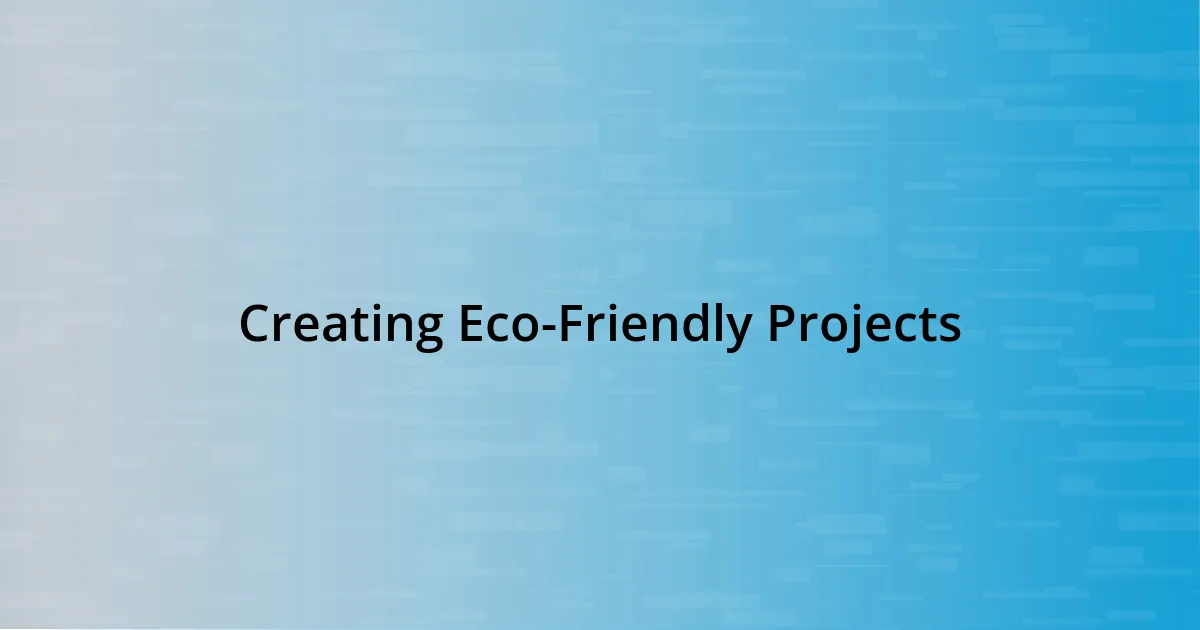
Creating Eco-Friendly Projects
Creating eco-friendly projects starts with finding innovative solutions to everyday challenges. I remember when a workshop group collaborated on an upcycling project; we transformed old t-shirts into reusable shopping bags. It was both creative and practical, and I felt a genuine thrill as I picked out my favorite colors and patterns. Have you ever considered how much waste can be reduced by simply reimagining what we already own?
In another workshop, we tackled the idea of reducing energy use through DIY home improvements. My project involved creating a small herb garden by a sunny window, which not only maximized natural light but also gave me fresh herbs for cooking. This experience highlighted how creating eco-friendly spaces doesn’t always mean grand gestures—it can be as simple as integrating nature into our homes. How does your living space reflect your commitment to sustainability?
When we dove into the world of eco-conscious events, I was inspired by our collective brainstorming session. Our team organized a zero-waste picnic, where each participant brought dishes that were eco-friendly and minimally packaged. Witnessing everyone’s enthusiasm was infectious, and it made me realize how fun and engaging ecologically responsible projects can be. Can you imagine the joy of sharing a meal where every detail was carefully designed to protect our planet?
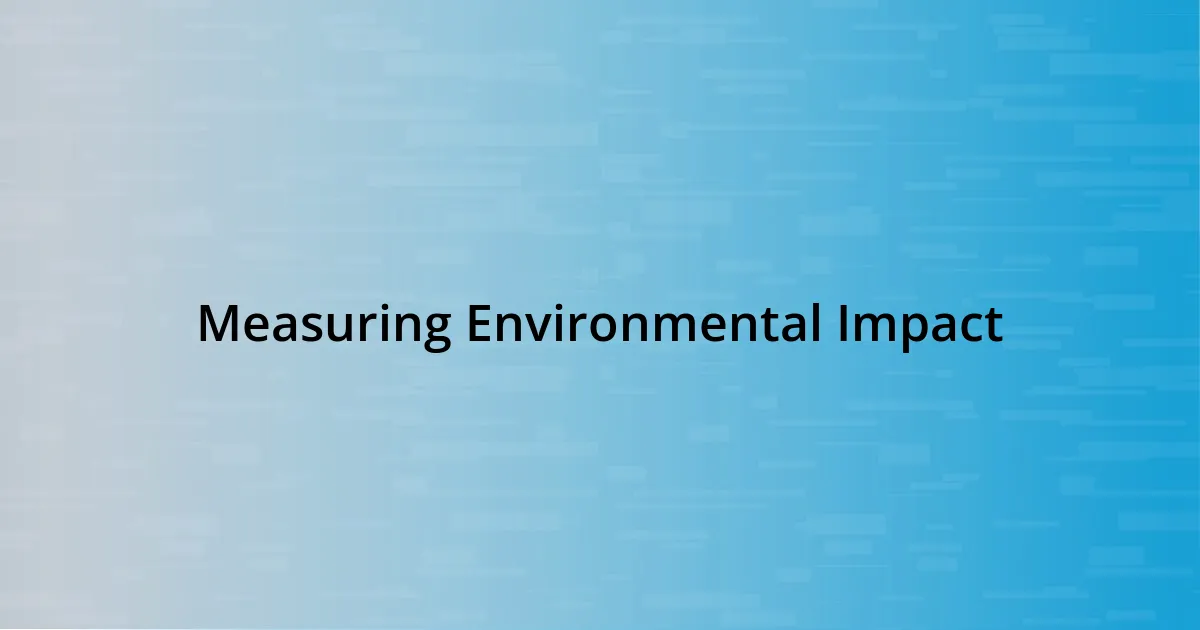
Measuring Environmental Impact
Measuring environmental impact can often feel like navigating a complex puzzle, but I’ve learned its importance through hands-on experiences in eco-education workshops. For instance, we were tasked with calculating the carbon footprint of our daily activities, and I was surprised to see how simple changes—like using public transport instead of driving—could significantly lower my impact. Have you ever taken a moment to assess how your choices contribute to the bigger picture?
During a workshop on sustainability metrics, I participated in a project where we measured the amount of waste our community generated during an event. It was eye-opening to see just how much trash we created and sparked conversations about waste management practices we could implement. I remember the collective determination that filled the room as we brainstormed strategies to reduce waste. Isn’t it empowering to realize that quantifying our impact can lead to real, actionable change?
Reflecting on these experiences, I learned that measuring impact isn’t merely about metrics; it’s about understanding our relationship with the environment. One memorable moment was when we were challenged to track our individual water usage for a week. I was stunned by how quickly my daily habits added up! This exercise not only made me more mindful but inspired me to dig deeper into water conservation methods. Have you ever stopped to consider how small adjustments in your routine can make a meaningful difference?
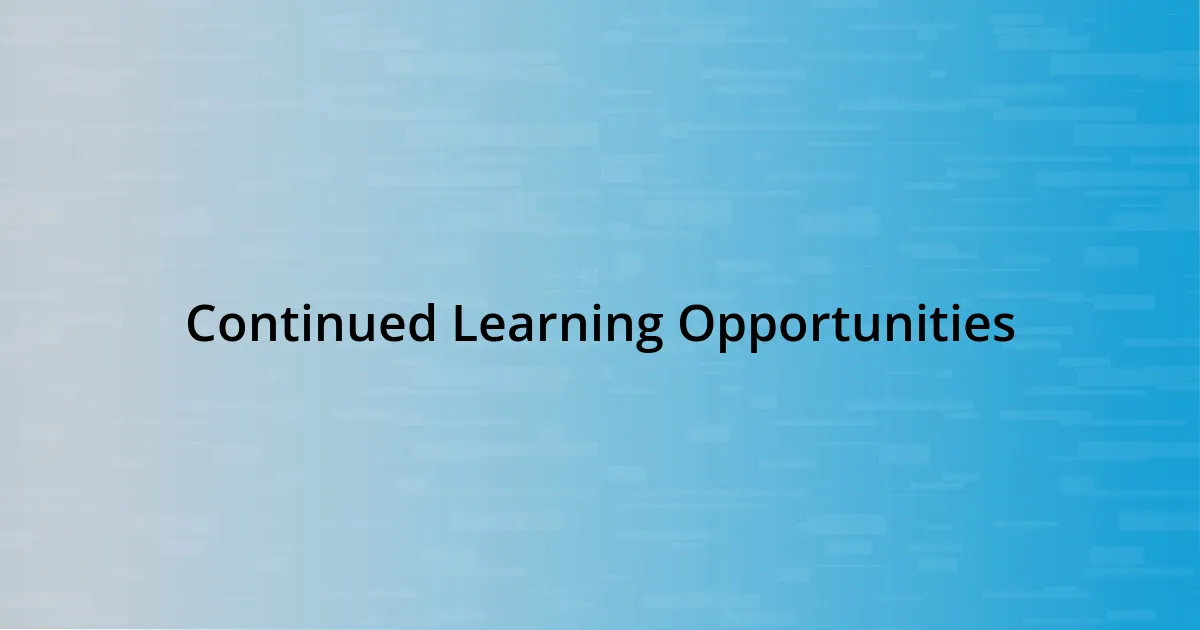
Continued Learning Opportunities
Continued learning in the realm of eco-education doesn’t stop with a single workshop. I discovered platforms like community forums and online webinars that offer additional resources and insights. In fact, I recently enrolled in a series of virtual lectures about sustainable urban gardening, and I can’t help but feel excited about applying those concepts in my own backyard. Have you ever found yourself diving deeper into a subject after a workshop, eager to expand your knowledge?
Networking with fellow eco-enthusiasts has been another rewarding avenue for continued learning. At one recent event, I joined a local eco-club that meets regularly to share experiences and collaborative projects. During our first meeting, we brainstormed ways to implement eco-friendly practices in our daily lives. The energy in the room was palpable; it felt like fuel for my passion. Have you connected with others who share your commitment to sustainability? Those conversations can lead to new ideas and inspirations, often sparking the next project to tackle.
Additionally, many organizations now offer ongoing certifications in various sustainability topics. I was thrilled to become a certified composting facilitator, enabling me to teach others about reducing organic waste. This journey has not only enriched my own practices but helped me engage my community in meaningful conversations about composting’s benefits. What are some ways you could deepen your understanding while also inspiring those around you? Embracing continued learning can transform our individual practices into community-wide movements.

